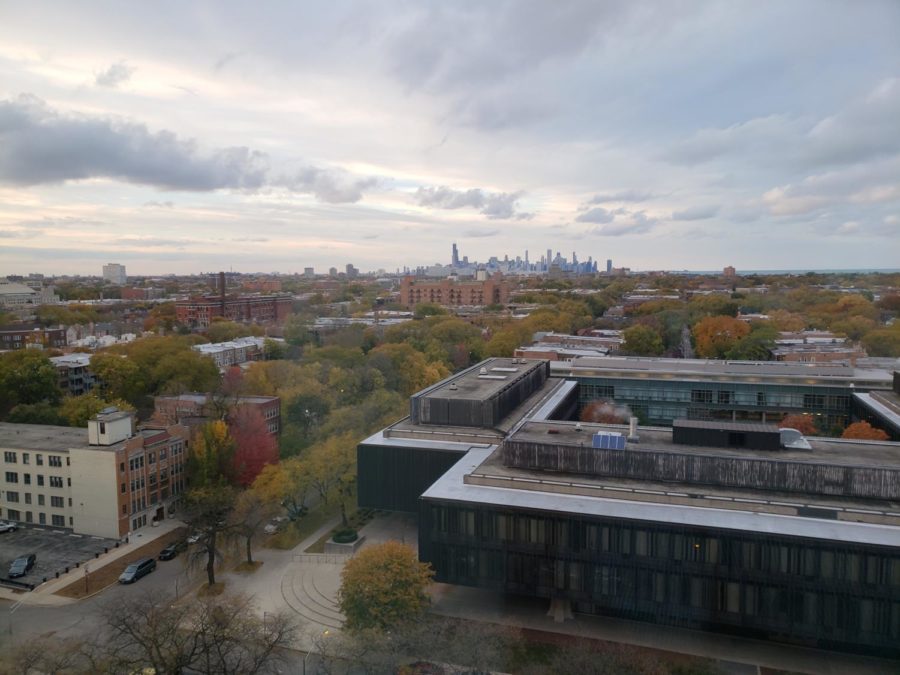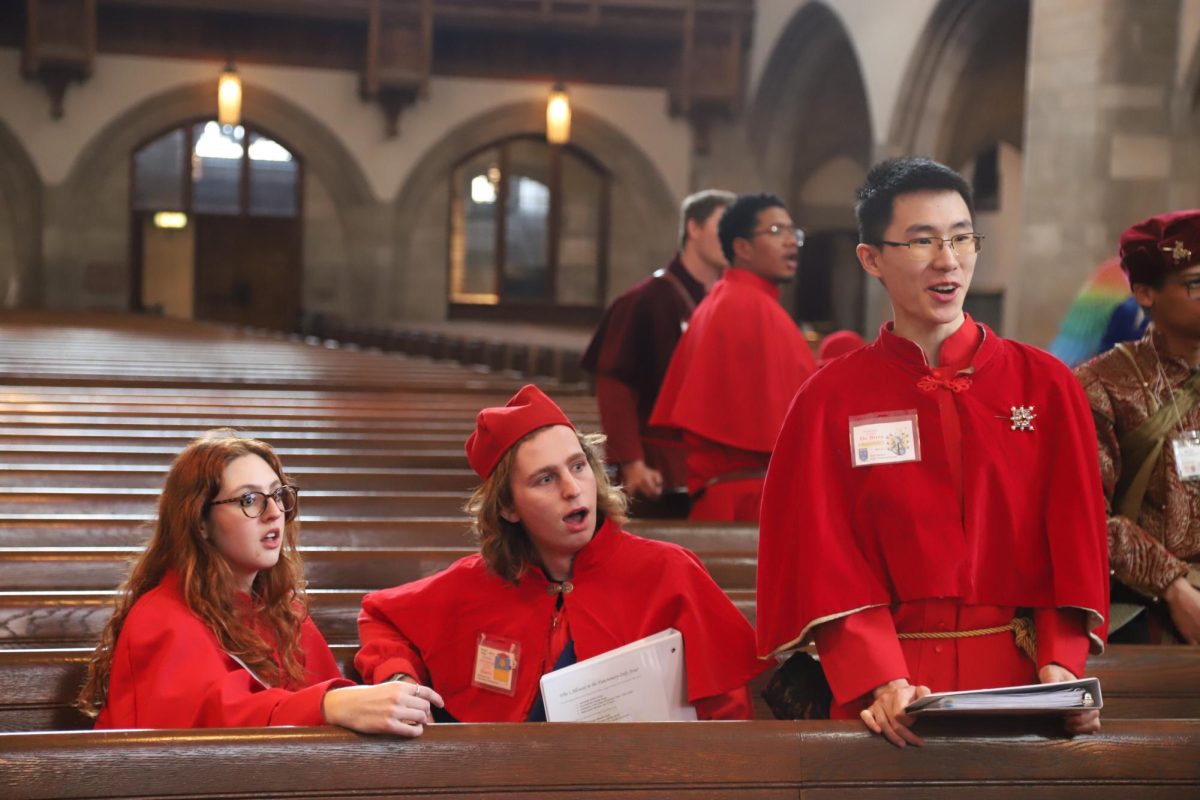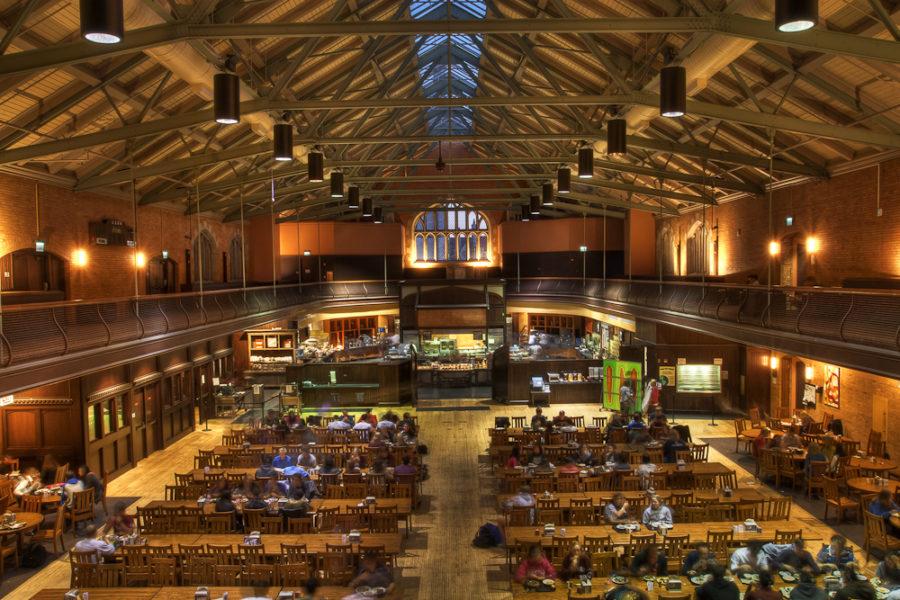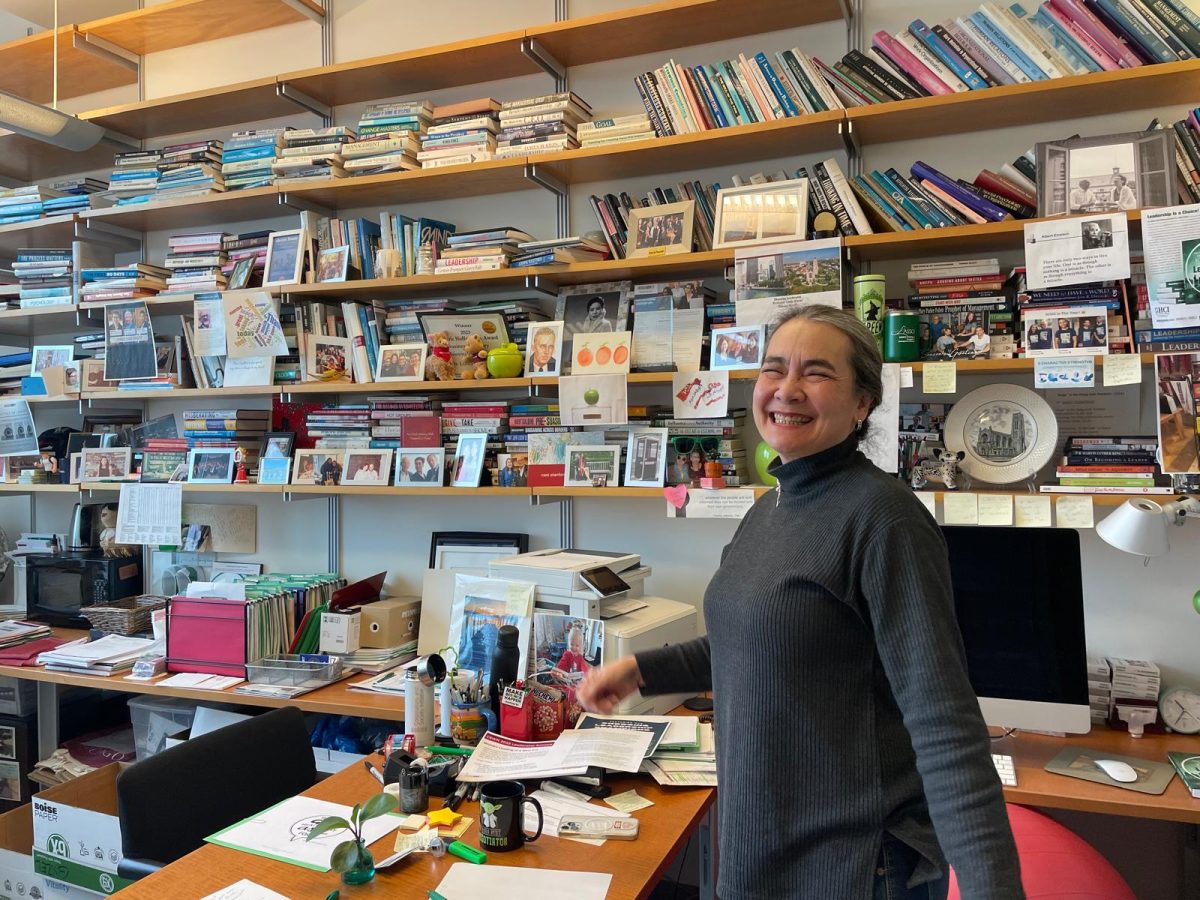In October 2020, Hyde Park was named Chicago’s first dementia-friendly neighborhood. The designation was thanks to the work of 12 partner organizations––led by Chicago Hyde Park Village, UChicago’s Memory Center, and the Supporting Healthy Aging Resources and Education (SHARE) Network. These organizations have provided dementia-focused health care and community-oriented programming throughout Hyde Park and Chicago under the Dementia Friendly America initiative. Though the COVID-19 pandemic created myriad challenges for people suffering from memory loss and for their loved ones, the health-care professionals who serve them have done their best to adapt.
Tessa Garcia McEwen is a social worker at the University of Chicago Memory Center, a branch of the medical center that researches and offers comprehensive care for memory-loss patients. For her, the designation represents the recognition of years of hard work. “We were very excited,” she told *The Maroon*. “It puts a face to the efforts already in the community.”
Dementia-Focused Programming Before the Pandemic
McEwen prompted the initiative to make Hyde Park dementia friendly by introducing Chicago Hyde Park Village to the Dementia Friendly America initiative. She sees the initiative as an opportunity for Hyde Park to be involved with a common standard of available care for memory-loss patients.
“A lot of places in Illinois got the designation already,” said McEwen. “Upon [arriving] as a neurology social worker at UChicago Medicine and starting to help people with dementia, [I realized] so many of them want a greater quality of life. There is no concrete cure for Alzheimer’s, so when you are diagnosed, it’s about ‘What’s next?’ We make the most of our experience living with this condition.”
The initiative had programs available in Hyde Park before the pandemic, including an art program and a dementia-friendly river cruise. The initiative has plans to collaborate with local banks and restaurants to adjust services, such as by shortening menus to make ordering easier for people with memory loss. McEwen said that the broader goal of Dementia Friendly America is “to educate our community members, our neighbors, to show them about what it means to be passionate and kind and attentive to dementia when we see it because it is such a lonely experience.”
People experiencing memory loss, she said, are disadvantaged both by their condition and by a lack of public understanding.
“The general public might not see it easily. They might not know that a person might be genuinely lost walking around outside and not finding their way home,” McEwen said. “They might not know that someone could be super confused navigating the grocery store with the lack of signage or help available to them. They may not know that someone with memory loss is super vulnerable at the bank, where they can be easily taken advantage of. Therefore, so much of this work is a dual effort to bring this enhanced quality-of-life programming and raise awareness in the community because there is another layer to dementia, which is behavior reaction, that is stigmatized.”
For McEwen, spreading awareness about the needs of people with memory loss is not only about comfort but also about safety.
“One thing I have been thinking about is law enforcement and first responders,” she said. “A lot of these patients are cognitively impaired. When they are interacting with something, it is challenging. For example, if they are wandering in the streets, with the climate of this country, it is especially vulnerable for a man of color with dementia walking alone outside and confused…. And with the general pattern that we see…African Americans are more vulnerable to get harmed in a snap judgement. I find it very concerning that because of this pattern, we don’t have a real systemic way to [disarm] and de-escalate safely. I worry about these folks who have dementia because they may appear out of sorts, but…they are probably lost and need a way home.”
One accommodation currently in place for Chicagoans with dementia is the Chicago Police Department’s Emergency Identification Bracelet Program, which assigns each enrollee a code number and a bracelet with emergency contacts. The authorities will be able to reach the emergency contact and access the bracelet holder’s files when necessary.
According to McEwen, medical facilities and long-term care communities need to be more compassionate and understanding of patients with dementia and Alzheimer’s disease. She cited the case of one dementia patient who was denied long-term care because the nurses and doctor in charge of his care wrote a report that misunderstood his confusion as “uncooperative” behavior. McEwen emphasized the need for medical professionals to be careful with labels and judgments as well as the importance of proper education and training with memory-loss patients.
Chicago Hyde Park Village (CHPV) is a mutual aid organization that provides social activities and daily assistance to the seniors of Hyde Park. The primary goal of CHPV, according to its special projects coordinator Dorothy Pytel, is to allow its members to “age in place,” or to feel supported by their local community as they age. Before the pandemic, CHPV operated on a membership model. Some programs included “drop-ins,” which involve having lunch and listening to a speaker who discusses cultural and health issues; affinity and support groups that meet regularly; and rides to medical appointments. As a part of the Dementia Friendly America initiative, CHPV raises awareness about dementia by training “dementia friends.” Pytel noted that there are 177 dementia friends in Chicago. According to CHPV’s website, dementia friends attend an hour-long training session to learn about dementia and “turn that understanding into action.”
Not all people with memory loss have had their lives affected to a great extent by the pandemic.
Scott Wezalis, 69, lives with his wife Joyce, 67, in Arlington Heights. Prior to the pandemic, Scott was Joyce’s primary caretaker, but on several days during the week, a professional caretaker came and assisted for a few hours. Joyce was diagnosed with Alzheimer’s disease last year, right before the onset of the pandemic. Scott recalled that, before the pandemic, “It took a couple years of seeing different specialists to find what she was experiencing. It took a visit to the [emergency room] to get a neurologist referral. Doctor [James] Mastrianni from The Memory Center diagnosed her.” After the diagnosis, it was clear that the condition had isolated them even before the pandemic. Joyce had difficulty interacting with new environments, so Scott and Joyce opted to stay in their home instead. When Scott spoke to *The Maroon* in February, the pandemic had indeed made activities and doctor’s visits more accessible for memory-loss patients.
Adjustments During the Pandemic
According to McEwen, for people with memory loss, the solitude brought about by the COVID-19 pandemic was similar to their lives before the pandemic. But in the midst of the crisis, interest in improving their lives only grew. The number of Dementia Friendly America Initiative program participants rose during the pandemic.
“In the pandemic, all those places of daytime entertainment closed. It was very tough for these people. But virtual events are [occurring] in lieu of the day programs,” McEwen said.
Additionally, patients with limited mobility could now participate in virtual events. However, for those without access to Zoom, McEwen added that there are also programs such as Mather’s Telephone Topics that can be accessed through a phone. People can call in and participate in events and discussions with a speaker. Another technology-free program is “Art Is…In,” which mails art kits to participants and has volunteers who periodically check up on them.
McEwen said that the initiative will keep many of the new programs, even after the pandemic is over.
“So many individuals are remote and confined, but the virtual programs are able to expand our reach,” she said. “For example, support groups have an increased virtual presence. Caregivers can call in on a whim.”
The same is true of new programs at CHPV.
“The pandemic is particularly troubling for our seniors, who were already oftentimes isolated,” Pytel said. “Because of their lack of access [to] and knowledge of technology, we [at CHPV] were really worried. But because we invested a lot in making sure people felt comfortable and confident of how to use it, we really were able to expand the programming that we did and opened it up to the general public.”
Fortunately, CHPV has programs with UChicago registered student organization Tech Savvy Friends, which began hosting a tech café every two weeks prior to the pandemic to build technological literacy among the elders of Hyde Park, priming many of its residents for a transition to remote programming.
Technology literacy and access has been a challenge for elders and patients with dementia who require periodic medical check-ups. During the early stages of the pandemic, the only way patients could see doctors was through video calls; however, some patients lack the knowledge or devices to attend virtual appointments.
“Zoom links are sent by email, and these people are falling through the cracks,” McEwan said. “For patients with dementia and Alzheimer’s, all five of their senses are diminished. It is difficult for them to hear on Zoom, see the doctor through masks, and so on.”
As for Scott and Joyce, not much has changed about their social situation. In the initial outbreak of the pandemic, Joyce was transitioning to her new routine and program per the recommendations of neurologists.
“Alzheimer’s patients know people, know responses to certain questions, but they have difficulty recognizing new things [in an unfamiliar setting] such as turning the faucet on [and] finding the toilet paper and soap,” Scott said.
Scott and Joyce used to enjoy attending plays, but the hobby had to change given Joyce’s symptoms. For example, Joyce could have difficulties using the public restroom.
Scott recounted a typical day during the pandemic: “After a healthy breakfast, we do homework and mental exercises such as word memorization, coloring, [and] writing names and numbers. Then Joyce does physical exercises such as stretching. Weather permitting, the caregiver and Joyce would walk on a nearby track. Then we would have lunch. After lunch, we go on walks or Joyce would ride horses. She is very physically active.”
Scott and Joyce have been able to see some of their friends, though not nearly as frequently as they used to.
“It was restrictive,” Scott said. “But Joyce understands.”
To protect himself and his wife, Scott was vigilant about avoiding exposure to COVID-19.
“I go shopping alone once or twice during the [week]. I avoid going during the weekends because there [are] more people,” he said. “I make a list, buy it, and get out quickly. I wipe everything down. [We] wash our hands. We always sanitize everything.”
Now that Scott and Joyce have both received the COVID-19 vaccine, and as cases of the virus in Illinois continue to fall, the couple will soon be able to return to some semblance of normality.









